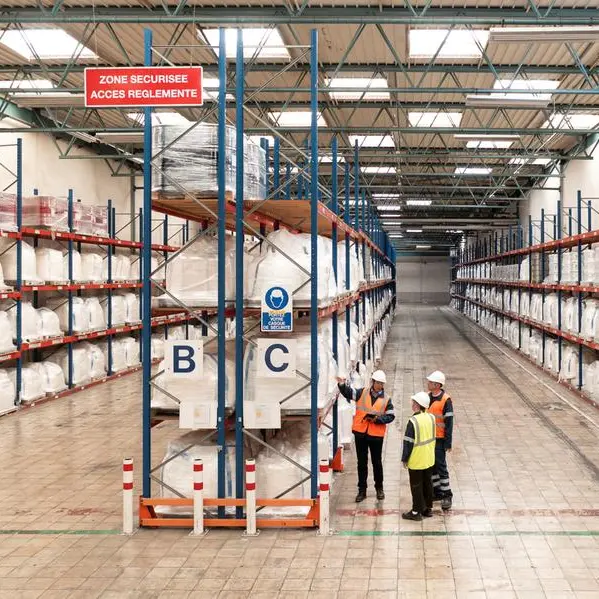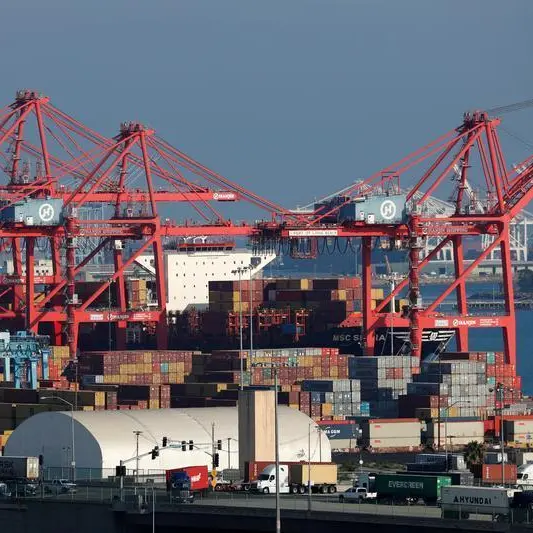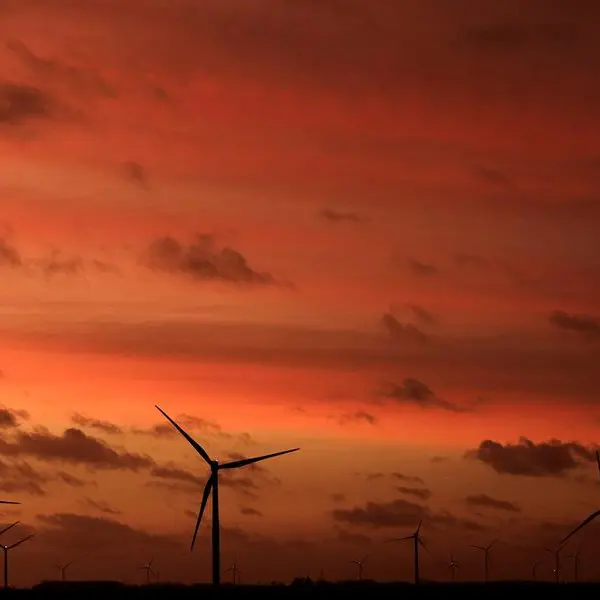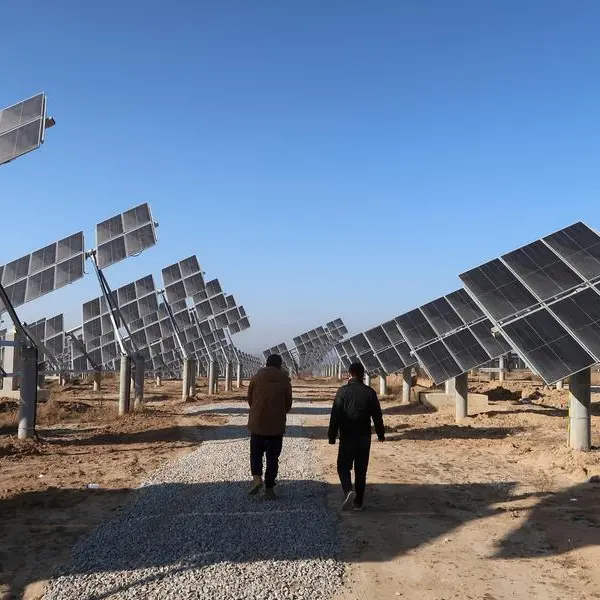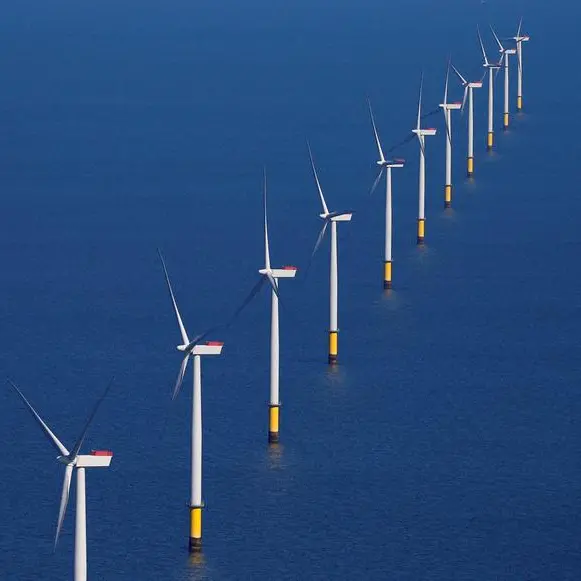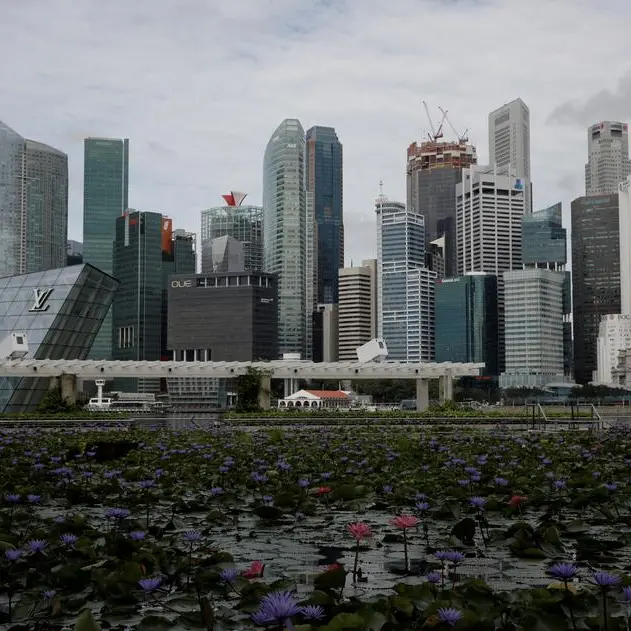PHOTO
OVERSCHILD, Netherlands- Images of bombed-out hospitals and apartment buildings across Ukraine reminded Jannie and Bert Schrage of their home country during World War Two. Then the retired couple, who live in the north of the Netherlands, realised they had a resource to help slow President Vladimir Putin's campaign – natural gas.
The Schrages live above the Groningen gas field, Europe's largest. They have been opposing gas production since earthquakes started to force them out of their homes a decade ago. Now, like a majority of those polled in their province, they say that if it would help Ukraine, they may allow more gas to be pumped out.
"I never thought the words would come out of my mouth," said Bert Schrage, a former teaching assistant at Groningen University, standing near a Ukrainian flag placed in his windowsill.
The Schrages' house, a prefabricated building from 1997, had to be demolished and rebuilt last year after it was declared unsafe due to quakes triggered by the gas extraction. Nearly every house in their village of 500 people, Overschild, needs to be totally refurbished or replaced, the couple said. Residents across the region have been campaigning for years for the gas field to be shuttered.
"Putin managed to change my mind," said Schrage.
His response exemplifies a sudden shift in energy policy across Europe that was triggered by Russia's invasion of Ukraine on Feb. 24. The incursion, which Ukraine President Volodymyr Zelenskiy likened to a new iron curtain falling across the continent, has highlighted Europe's dependence on Russian energy and triggered a scramble to secure scant non-Russian energy sources – from the United States and Qatar to Japan, which will divert some of its liquefied natural gas (LNG) imports to Europe.
Russia denies targeting civilians, saying it is conducting a "special operation" to demilitarise Ukraine. Even as the conflict rages, Russian gas is still flowing to Europe, accounting for 40% of its total supplies. However, a Russian foreign ministry official said on Saturday the European Union would end up paying at least three times more for oil, gas and electricity as a result of sanctions against Moscow.
From Germany to the United Kingdom, policymakers who were pushing to cut back on hydrocarbons to slow climate change are being forced to scale back those ambitions. Germany is considering extending the lifespan of coal or even nuclear plants. UK lawmakers have called on the government to lift a moratorium on fracking.
The Groningen field contains roughly 450 billion cubic metres (bcm) of recoverable gas. That's nearly three years' worth of European imports from Russia, according to Rene Peters, a gas specialist at the Netherlands Organisation for Applied Science, known by its Dutch acronym TNO.
Fuel from Groningen has heated Dutch homes, generated electricity and powered industry in the Netherlands and beyond for half a century. Between 2000-2018, the Netherlands exported 202 billion euros ($221 billion) worth of gas to Germany, Belgium and France, according to Statistics Netherlands.
Science has shown gas extraction can destabilise the land above the deposits and the Dutch watchdog for gas production warned last week that production, even at low levels, will increase the risk of earthquakes to people living in unsafe homes.
"As long as people in Groningen run a higher risk of dying - due to the collapse of houses as a result of a major earthquake or due to stress and uncertainty - phasing out gas production and quickly realising the reinforcements will remain necessary for safety," said Theodor Kockelkoren, inspector general at the State Supervisor of Mines.
The government said in a statement on Monday it still aims to permanently close the field as soon as possible, or in 2023 or 2024. But it said new uncertainty, "partly due to the Russian invasion of Ukraine," meant Groningen gas may be needed as a last resort.
After years of quarreling about compensation with the government and the Nederlandse Aardolie Maatschappij (NAM), the joint venture between international oil majors Shell and Exxon Mobil Corp. that manages production, many in Groningen oppose increasing output. The NAM declined to comment for this story.
The Schrages say they had to tap 25,000 euros ($27,400) of their retirement savings to finish rebuilding their home. They want the government to promise to cover any costs from potential further damage, but they add that the disruption would be worth it if they could make a difference.
"Our entire town has been turned upside down," said Bert. "But if we can turn that into something positive and contribute to stopping the war in Ukraine, then we need to do that."
PROSPERITY AND PAIN
That would be a dramatic change for Groningers. Just weeks before Russia invaded Ukraine, the Schrages, whose street is littered with construction sites and abandoned homes, joined thousands of protesters who marched with burning torches to demand an end to the gas pumping.
The gas field, discovered in 1959, is one of the largest in the world. It was in many ways a symbol of post-war prosperity for the Netherlands, and for continental Europe as a whole.
When output peaked, in 1982, Groningen provided nearly a fifth of the Netherlands' annual government budget. The proceeds funded major infrastructure projects. Millions of households and businesses were connected to a nationwide pipeline system that generated electricity and spurred industrial growth.
The share that benefited Groningen itself was tiny, said Jan Wigbolgus, who as head of the Groninger Gasberaad, a collective of social groups, lobbied for locals to have their concerns about gas production addressed.
Organised opposition started in 2009 but it took many years of campaigning for residents to win repairs to their homes. It was not until 2015 that the quakes were recognised as a safety risk by the authorities.
The NAM long denied a link between the quakes and gas production. In 2018, it agreed with the state to fund compensation and has covered the bulk of the costs, but last month it filed for arbitration over the ongoing payment of damage claims.
A large quake could bring the walls down around many people. By the end of January, just 14% of more than 27,000 houses found by a government-ordered assessment to need reinforcement had been declared safe, several years behind schedule, according to a report by the National Coordinator for Groningen.
More than 200,000 damage reports have been filed since the 1990s, Wigbolgus said.
Ukraine has cast the Groningers' concerns in a new light.
The Schrages said the fighting there resurfaced memories of the Nazi occupation of the Netherlands in World War Two, when men in their province were forced to dig trenches and sea barriers were broken open to cause flooding – part of a failed attempt to slow advancing Allied troops.
Recent opinion polls by Dutch media indicate the government could count on popular support if it were to abandon the policy of reducing extraction to zero, if that led to lower Russian natural gas imports.
A majority of 61% out of 3,000 respondents in Groningen told a poll for the Dagblad van Noorden newspaper they would support higher local production if it reduced dependence on Moscow, which supplies as much as 20% of gas used by the Netherlands.
A national poll for current affairs programme EenVandaag on Dutch public television in late February, for which more than 21,000 people were questioned, found 63% would support resuming Groningen extraction if Russia were to cut off exports to Europe.
"Here, houses might collapse due to safety problems," Wigbolgus said. "There, there is real bloodshed."
BACKLASH
Moscow's Ukraine campaign has prompted a wider backlash against Russian oil and gas. The United States banned Russian oil imports, while the European Commission published plans to slash Russian gas imports by two-thirds this year. Non-Russian liquefied natural gas and pipeline imports could this year replace more than a third of the 155 bcm Europe gets annually from Russia, the Commission said.
Western sanctions targeting Russia's economy and Putin's supporters could escalate the confrontation with the Kremlin, which has threatened to retaliate by cutting off the major Nord Stream pipeline carrying gas to Germany, said gas expert Peters.
If that happened, increasing Groningen output could help parts of neighbouring Germany, Belgium and northern France that can use Dutch gas, said Peters.
But, like other short-term solutions such as increasing use of coal-fired electricity plants, that would undermine efforts to reduce fossil fuel, he said.
(Reporting by Anthony Deutsch; Additional reporting by Nina Chestney in London, Toby Sterling and Bart Meijer in Amsterdam and Maria Sheahan in Berlin; Editing by Sara Ledwith)


